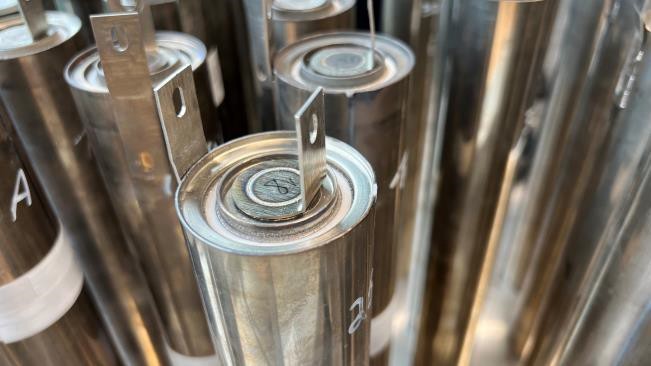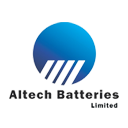Altech Batteries: Powering the Future of Grid Storage, Construction To Start in 2025

Altech Batteries is commercializing sodium-ion batteries for grid storage, targeting utility providers transitioning to renewables. With funding to build its first plant, Altech aims to unlock a huge market need.
- Altech Batteries (ASX:ATC) is commercialising a sodium chloride (salt) battery for the grid storage market
- Recently raised A$3.7 million from shareholders to advance its battery projects
- Targeting utility providers in Germany as initial customers, with the potential to expand to other industries and geographies
- Plans to fund 120MWh plant through a mix of equity, green bonds, and government grants/subsidies; aiming to start construction in 2025
- Key advantages include safety, wide operating temperature range, and long life; economies of scale will be important
Powering Up for the Grid Storage Revolution
Altech Batteries, an Australian company listed on the ASX under the code ATC, is positioned to capitalize on the rapidly growing demand for grid-scale energy storage solutions. The company is commercialising an innovative sodium chloride (salt) battery technology targeting the lucrative grid storage market. With the accelerating global transition to renewable energy, Altech's technology offers compelling advantages and significant market potential.
Interview with Martin Stein, CFO of Altech Batteries
Funding and Commercialization Plans
In a recent share purchase plan, Altech raised A$3.721 million from its shareholder base of over 7,500 investors. The strong uptake in a challenging market environment, demonstrates investor confidence in Altech's battery projects and growth strategy. As Chief Financial Officer Martin Stein explains,
"We like to keep our shareholders' communications up so they're always aware of what we're doing, and I think that paid off with the shareholder uptake and the support they were providing us."
Armed with this funding, Altech is moving forward to secure customers and the financing to construct its first commercial-scale plant. Based on a feasibility study released in March 2024, the 120 megawatt-hour "Sodium Energy Battery" project is estimated to require approximately €170-180 million in capital. Altech intends to fund the project through equity, green bonds, and grant/subsidy funding from German federal and state governments and the European Investment Bank. Construction is targeted to begin in 2025, with a two-year build time and battery production commencing around 2027.
Targeting the Grid Storage Market
Altech initially focused on serving utility providers in Germany transitioning from fossil fuels to renewable energy. Grid-scale batteries are critical for storing surplus renewable energy produced intermittently from sources like solar and wind. Without adequate storage, this clean energy goes to waste - in 2022 alone, Germany dumped around €2 billion worth of surplus renewable power.
"Grid storage batteries are the future of the renewable energy transition," says Mr. Stein. "Wherever renewable energy is produced, it's produced intermittently; for example, solar doesn't produce at night time, but the grid requires it, so grid storage batteries are going to be in demand."
Altech is currently in discussions with multiple German utility providers but is concentrating on two to potentially off-take the entire five-year production from its initial plant. Securing these customer commitments will be key to unlocking project financing.
Competitive Advantages
Altech's sodium-ion batteries offer several advantages compared to incumbent lithium-ion technologies like Tesla's Megapacks. As a solid-state design without any flammable materials, they are completely fire—and explosion-proof. This safety profile allows the batteries to be stacked three-high, reducing the installation footprint. The batteries also have a wider operating temperature range of -40°C to +60°C and a longer expected lifespan of 15 years.
Importantly, sodium-ion batteries do not require scarce or expensive raw materials like lithium, cobalt, graphite, and copper, which are subject to supply constraints and price volatility. Altech's batteries still provide a competitive energy density of around 120 watt-hours per kilogram, compared to about 160 Wh/kg for lithium-ion batteries.
Expansion Potential
While Altech initially targets utility-scale customers, management sees abundant opportunities to deploy its batteries across various applications. The company has already fielded unsolicited enquiries from the agriculture and real estate development industries. As Mr. Stein points out, "Wherever [renewable energy] is produced, we're going to need batteries, and the end uses are limitless."
Longer-term, Altech has ambitions to replicate its sodium-ion battery factories in other geographies, with the U.S. earmarked as a priority market. Management also sees potential for its batteries to generate investment returns by capitalising on power price arbitrage opportunities as renewable energy penetration increases.
The Path Forward
Having already substantially de-risked its sodium-ion battery technology, Altech's primary focus is securing binding sales agreements with German off-takers. In parallel, the company will be working to assemble the €170-180 million funding package required to move its first commercial plant into construction in 2025.
If it successfully brings its initial 100 MWh plant into production, Altech will have a compelling springboard to rapidly scale up its capacity and pursue a global rollout to capture market share ahead of emerging competitors. As economies of scale drive down costs, the company's early mover advantage could cement an enduring competitive position.
Conclusion
With its innovative and sustainably sourced battery technology, blue-chip management team, and focused go-to-market strategy, Altech Batteries offers investors an attractive way to gain exposure to the secularly growing grid storage industry. While risks around customer adoption and project financing remain, the company has substantially advanced its commercialization plans and possesses multiple competitive advantages. If Altech can execute on its project pipeline, the potential for value creation is significant as decarbonizing economies accelerate their build-out of renewables plus storage capacity.
Investment Thesis for Altech Batteries
- Innovative sodium-ion battery technology with competitive advantages around safety, raw materials, lifespan and operating conditions
- Targeting the rapidly growing grid storage market, with an initial focus on Germany
- Substantially de-risked technology with a clear path to commercialisation
- €170-180 million project financing would unlock significant value creation potential
- Longer-term expansion opportunities across applications and geographies
- Potential for batteries to become investable assets that generate cash flow from energy arbitrage
- Opportunity to establish early-mover advantage and gain market share with scale economies
- Risks around customer adoption and ability to secure a full project funding package
- Exposure to a secularly growing need for energy storage to enable renewable energy transition
Macro Thematic Analysis
The global imperative to decarbonize energy systems unleashes a powerful macro trend of renewables growth coupled with soaring demand for grid-scale batteries. Intermittent clean energy sources like wind and solar require energy storage to align supply with demand and ensure grid stability. Without adequate storage capacity, surplus renewable generation is simply wasted.
Annual installations of grid-scale batteries are projected to increase more than tenfold over the next decade, from 15 gigawatt-hours in 2023 to over 160 GWh by 2030. Europe is anticipated to be a key growth market as renewable energy penetration accelerates. Goldman Sachs estimates that more than 120 billion euros of grid storage investment will be needed across the continent by 2030. Germany is at the forefront of this transition.
As Altech CFO Martin Stein sums up the opportunity:
"We know grid storage batteries are growing at a 28% compound annual growth rate. We know that batteries will be required wherever renewables are being produced."
While lithium-ion batteries currently dominate te market, there is ample room for alternative technologies like sodium-ion to carve out share based on superior safety, sustainability and cost profiles. Significant public and private investment is pouring into next-generation battery solutions, but relatively few have reached the cusp of commercialisation like Altech's. If the company can capitalise on its first-mover position, navigating the crucial leap from pilot to commercial scale, the runway for growth will be immense.
Analyst's Notes




Subscribe to Our Channel
Stay Informed













